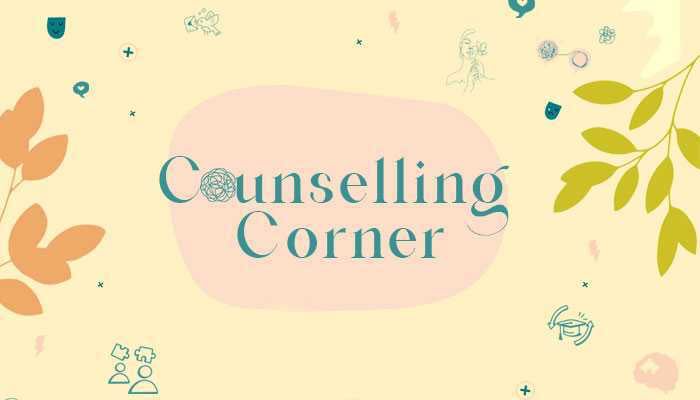'My 8-year-old is addicted to her tablet. How do I restrict her use?'
"It's getting challenging for me to discipline her about it because she always starts acting up and crying after which I give up," says a worried single mother
July 30, 2025
Dear Haya,
I'm a single mother of an eight-year-old daughter who is addicted to her smart tablet. She received the tablet as a birthday gift from my brother who loves and adores her a lot. Although I was not comfortable with the idea of her getting access to a screen at such an early age, I didn't want to break my brother's heart, so accepted the present.
But since she got the tablet, she is literally stuck to it — whether she's back home after school or even when she's eating food. It is turning into an addiction for her, as she no longer even plays with her toys or watches cartoons on TV. It's getting challenging for me to discipline her about it because she always starts acting up and crying after which I give up.
Please tell me how I can be a good mother, while also keeping my daughter's screen time in check. I don't want to be known as a very strict mother, but I also want my daughter to follow rules and be a disciplined kid.
— A worried mother

Dear worried mother,
The fact that you're thinking so deeply about your daughter's well-being already tells me you're a good mother.
I hear your struggle. Being a single mom is incredibly demanding. You're trying to raise a happy, grounded and disciplined child, while also not wanting to come across as overly strict. You didn’t feel comfortable with her having a tablet this early, but gave in and chose to accept it out of love and respect for your brother. Since then, screen time seems to have taken over and she’s losing interest in other creative, healthy activities.
You’ve shared how hard it is to set limits, especially when she cries and how often you end up giving in just to keep the peace.
This emotional tug-of-war is something many parents face: the tension between wanting to nurture joy and connection and wanting to protect their child from overstimulation and screen dependency. These are incredibly tough decisions, more so when you’re parenting alone.
But here’s what I want you to hear clearly: that doesn’t make you a bad mom.
Let’s take a deeper look at what’s happening and explore how you can move forward with more clarity and confidence.
1. Begin with self-compassion
I’m sensing a few underlying issues from your words — the weight you carry as a single mother, the overwhelm, and perhaps even a sense of mom-guilt around your current challenges. Is that true?
Could it be that your tendency to give in when your daughter cries is linked to this guilt — and becomes a way of compensating or making up for things you feel she’s missing?
These are important questions worth exploring with curiosity, not judgement.
2. Reflect on your inner definitions
I encourage you to gently reflect on your own beliefs:
- What does “strict” mean to me?
- What does being a “good” mother mean?
Sometimes, we attach ourselves to ideas of "being good" or "not being strict" in a way that keeps us stuck. Clarity around these definitions can help free you from guilt and guide you towards choices that serve both you and your child.
3. Redefine love and boundaries
Loving someone doesn’t always mean giving in to every demand. Sometimes, love looks like doing what’s best for them — even if they can’t understand it in that moment.
Think about this: If your daughter was reaching for an electrical socket, would you let her do it just because she wanted to? Or would you stop her — even if she cried or got upset — because her safety matters more than her temporary discomfort?
It’s the same with emotional boundaries. What feels like peace in the short term (avoiding a tantrum) can create confusion and insecurity in the long run.
4. Children need boundaries to feel safe
The thing with kids is that they thrive on routine, structure, consistency, and clear boundaries. These aren’t signs of being “strict” — they’re signs of emotional attunement.
Right now, your daughter may be missing the consistency that helps her feel safe. And the hard truth is: when we say we want our children to be disciplined but give in each time they cry, we end up giving them the idea that boundaries are not real and that you can be swayed by emotions.
Boundaries are one of the strongest expressions of love.
Children follow what they see, not just what they’re told. If you want your daughter to respect rules, she needs to see you consistently following through. When your words and actions match, she begins to trust that the boundary is real and safe.
Saying "no more screen time" without following it up with action can signal that the rule doesn’t really matter — especially if there are no consequences when it’s broken. Over time, she learns not to take it seriously — not because she’s disobedient, but because the structure doesn’t feel clear.
5. What happens when we keep giving in
We may think we’re doing the right thing by keeping the peace in the moment - but in the long run, it may do more harm than good. Here’s why:
They learn that crying equals control
Without realising it, kids start to use emotional outbursts to get what they want: "If I cry hard enough, I can change the outcome". This creates a dynamic where they feel in control of the parent, instead of learning to manage their emotions.
They develop weak emotional regulation
When every big feeling is “fixed” by giving in, children don’t learn how to sit with frustration, boredom, or disappointment — all essential for resilience.
They struggle with accepting boundaries
If rules disappear under pressure, they may assume boundaries only apply when it’s easy — which can lead to entitlement or defiance later on.
They become dependent on external soothing
Instead of developing internal coping skills, they rely on others to help them calm down — which can show up as anxiety or emotional fragility later.
You burn out
Constantly surrendering is exhausting. It leads to resentment, guilt, and emotional fatigue — which can affect both your well-being and your bond with your child.
So what can you do from here?
1. Reset the narrative
Don’t focus on taking the tablet away — frame it as rebalancing her day.
You can say: “Let’s make a fun plan together where the tablet is going to be one part of your day — along with play, food, and stories.”
Giving her a sense of involvement helps ease the transition.
2. Create a 'tablet time' routine
Introduce structured screen time. For example, only after homework and play, for one hour, and never during meals. Let her help design a weekly schedule and decorate it with stickers or drawings. This gives her a sense of control while learning boundaries.
3. Replace, don’t just remove
Offer exciting alternatives — arts and crafts, dancing, building Lego, nature walks, or even helping you with simple chores. Create a rotating "play basket" to keep things interesting.
4. Implement boundaries and stay calm during meltdowns
If she cries when limits are set, that’s her brain adjusting not you are failing.
Acknowledge her feelings: "I know you're upset that tablet time is over".
Continue to hold the boundary: "But it's time to stop now, like we agreed".
Stay calm while she’s crying and offer comfort but not a change in rules. Eventually the consistency teaches her emotional regulation.
5. Model the balance
Let her see you unplug too. During meals, before bed, or when spending time together. Kids learn by watching. When they see you present and grounded, it becomes easier for them to do the same.
Remember, you’re the parent — the steady guide your child needs. Kids often want what feels good in the moment, but you know what’s best for them in the long run.
It might feel hard now, but holding firm with love will help her grow into a secure, emotionally strong child.
You’ve got this — it’s not easy, but it’s worth it.
— Haya

Haya Malik is a psychotherapist, Neuro-Linguistic Programming (NLP) practitioner, corporate well-being strategist and trainer with expertise in creating organisational cultures focused on well-being and raising awareness around mental health.
Send her your questions by filling this form or email to [email protected]
Note: The advice and opinions above are those of the author and specific to the query. We strongly recommend our readers consult relevant experts or professionals for personalised advice and solutions. The author and Geo.tv do not assume any responsibility for the consequences of actions taken based on the information provided herein. All published pieces are subject to editing to enhance grammar and clarity.













